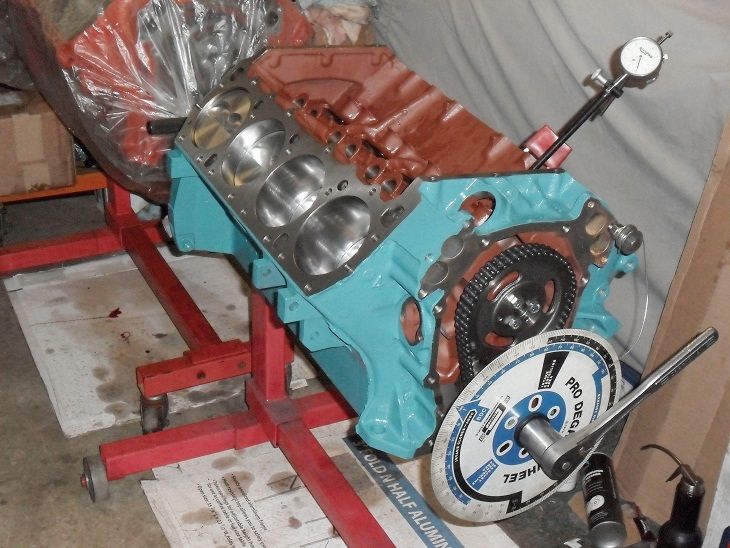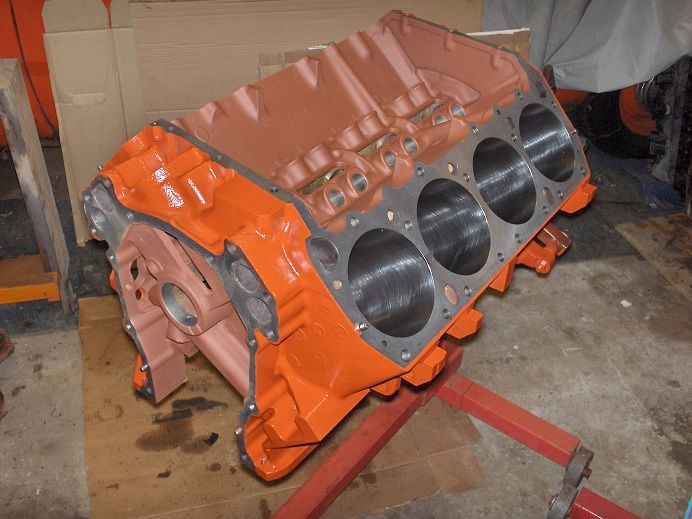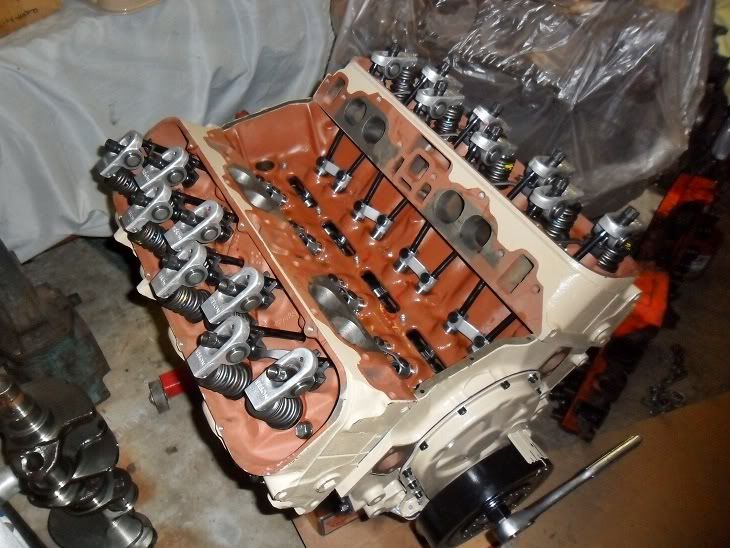Posted By: 408cuda
Glyptal/internal engine painting questions - 02/25/14 07:51 AM
I have an unopened can several years old that I could just never pull the trigger and use on anything I built for myself or others. It's a nice idea but seems like an area for another potential disaster. Lots of people paint every inch inside with this or maybe something similar but I gotta wonder what happens if things aren't spotless, or even on small spot starts to lift? Seems like it would eventually all peel off, especially if you had hard edges which is inevitable. How are you guys doing it, right after hot tank? I can't imaging getting it clean enough with just thinner but maybe I'm wrong? I smoothed the lifter valley with carbides and paper in my own 408 to get some of the benefit without having to break my can open and actually try the stuff.
Thoughts for or against?
Thoughts for or against?




 It does much more than just look cool...lol.
It does much more than just look cool...lol.
 What functional purpose does it serve. I use oven cleaner to remove it when I get an engine that someone has applied it to.
What functional purpose does it serve. I use oven cleaner to remove it when I get an engine that someone has applied it to.


 but I think you might be able to find a crack, should one appear
but I think you might be able to find a crack, should one appear 

